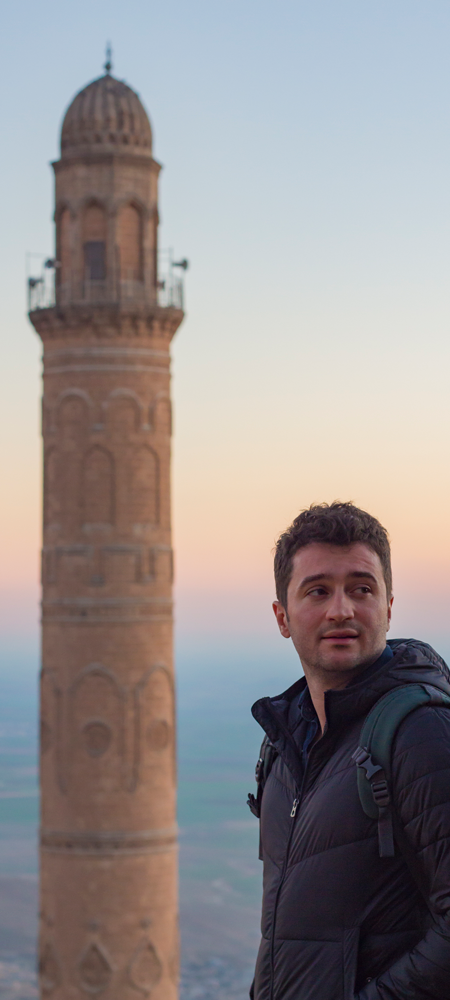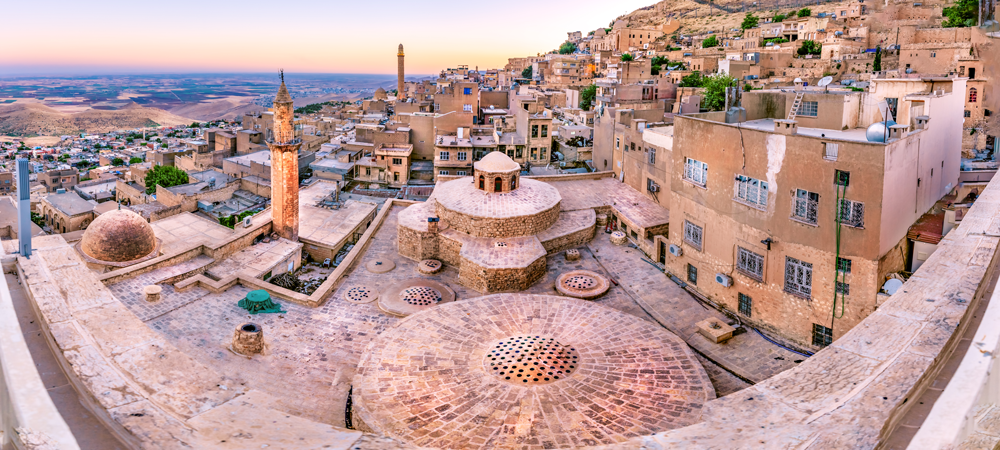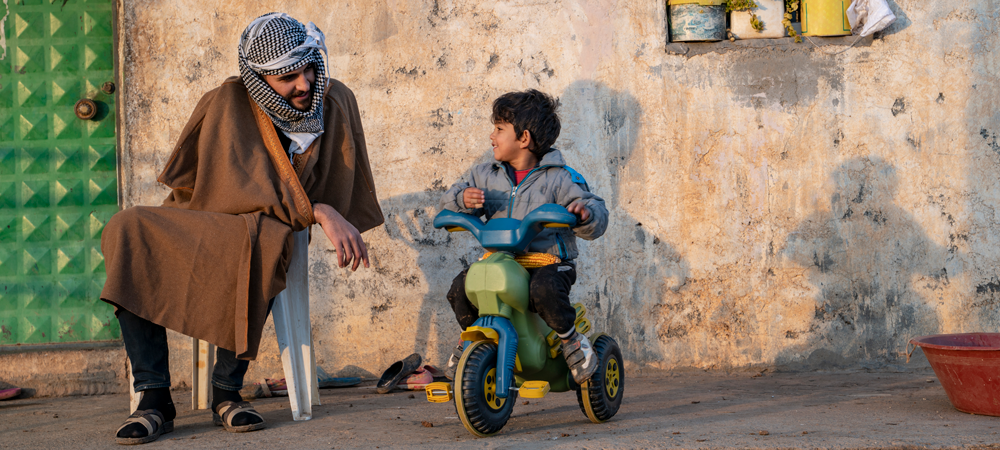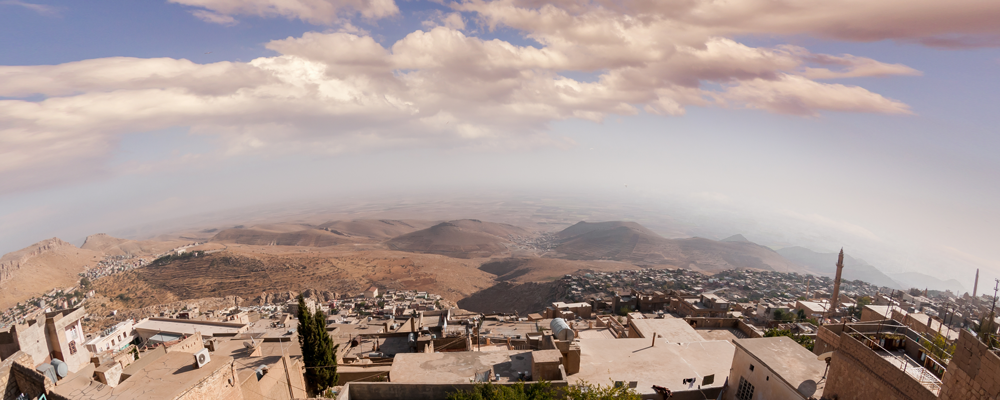In This City is a challenge to journey with us in prayer for 12 key cities in 2020. We ask you to commit to praying for fruit that will ripen and bear the seeds for mature, vibrant, and multiplying churches across the Arab world.
Introduction
Let’s dive into the historical and cultural melting pot that is Mardin. The city sits atop a hill overlooking the limestone plateaus of Mesopotamia. As the capital of its province in southeast Turkey, Mardin is rich for its archaic landmarks, antique craftsmanship, and diverse trade. It has often been considered an open-air museum due to its Artuqid architecture. These fascinating buildings were built in the eleventh century and have stood the test of time.
Today, the city is an increasingly popular tourist hub. Avid history buffs come for the buildings, some geologists for the distinct landscape, and others for the hot Mediterranean climate. Many enjoy the roof-terrace breakfasts, particularly to watch air balloons ascend over the plains. The streets are usually filled with vendors. Historically, Mardin produced sesame, but these days visitors tend to stock up on spices, soaps, and silver jewellery with intricate filigree.
Sitting just 50 kilometres | 31 miles away from the Syrian border, Mardin has been a place of sanctuary for thousands of Syrian and Iraqi refugees in recent years. Many Arabs have found safety and temporary homes within its boundaries. Many others have chosen to integrate with Turkish and Kurdish society and remain in Mardin, establishing their own businesses in food produce or construction.

 About Mardin
About Mardin
Population: 90,000 (city est.), 810,000 (province)
Languages: Turkish, Kurdish, Arabic
Religion: Muslim 99.8% (mostly Sunni), other 0.2% (mostly Christians and Jews). These percentages are for the whole of Turkey, as there are no official figures specifically for Mardin.
Ethnic groups: Turkish 70–75%, Kurdish 19%, other minorities 7–11%
Geographical size: 970 km² | 375 mi²
Location: Southeast Turkey
Key historical events: Ancient city name ‘Izala’ first recorded in the Bronze Age. Absorbed into Assyria proper during the Assyrian Empire (1365 BC). In the Roman period, the city became known as ‘Marida’ meaning fortress. Conquered in late third century AD and under the Sassanid Empire. The Byzantines lost the city to the Seljuks (Artuqids) in the eleventh century which is when many of Mardin’s historic buildings were constructed. During the medieval period, the town became the centre for episcopal sees of Armenian Apostolic, Armenian Catholic, Church of the East, and Syriac Catholic churches, as well as a stronghold of the Syriac Orthodox Church. Later, in AD 1515, the city surrendered to the Ottomans. They held the city through to the founding of the Republic despite a few conflicts. The Armenian Genocide (1914–1923) affected the city, as Mardin was home to a considerable number of Assyrians and Armenians. When the Republic was founded, Mardin became the administrative capital of the province of the same name in 1923. A Syrian refugee camp was built to receive internally displaced people and refugees of the Syrian Civil War.

Challenges
People
As mentioned in the key historical events, Mardin has come under the rule of many empires and has been home to swathes of people. Today, Turks make up the majority of the city’s population, but there are a significant number of Kurds and Arabs. Though there are deep divides between these people groups, Mardin has remained relatively peaceful in recent years.
Today, all people groups in Mardin are struggling with the impact of the Covid-19 pandemic. The city is on lockdown, and many fear the consequences the lack of tourism will bring.
Seekers
Turkey’s Constitution allows for freedom of religion. The country is generally considered more tolerable of Christians than some Middle Eastern countries. Church buildings are utilised, and Christians can worship freely. However, sharing the gospel with a Muslim can have severe consequences: several believers have been arrested and imprisoned. If Muslims show an interest in Christianity, they are usually treated as renegades. Turkish identity is also deeply tied to Islam: to be Turkish is to be Muslim.
In Mardin, people are used to the presence of churches. But for non-Turks who are not from a historic Christian background – and do not have this on their identity cards – trying to integrate into Turkish culture while openly asking questions about Christianity is almost impossible. People are alienated from society, denied employment, and thrown out of properties. But the Church is trying to reach more people.
Team
We do not have a local team based in Mardin. Though Christians make up less than one per cent of the population in Turkey, it means there is much crossover between churches and organisations, helping each other out to share God’s love. A Turkish radio group, named Radio Shema, has recently established an office in Mardin. Amid the coronavirus lockdown, they are broadcasting more programmes about the gospel truth than ever before in Turkish and Arabic, and hoping to broadcast Kurdish programmes soon. The local churches continue to meet together via online video calls, and also attempt to reach out to others.

Prayer points
-
Pray for spiritual breakthrough amongst Arabs in Mardin. As many are looking for a sense of belonging after being displaced from their home, pray that they will not look for it in peoples or nations but in Jesus.
-
Ask God to provide for people during the Covid-19 lockdown. Many are fearful of what the future holds, if their business will survive, and how they will manage day-to-day. Particularly pray for refugees and other vulnerable people at this time.
-
Give thanks for the Spirit’s presence in Mardin, that the city has remained fairly peaceful for many years. Pray that as political tensions continue to mount in Turkey, Mardin will remain a safe haven for all who live there.
-
Pray for the local churches to remain steadfast in their faith. Pray for boldness to share the gospel with non-believers, and unity between old and new churches. Thank the Lord that the Protestant church, which reopened four years ago, is growing, and brothers and sisters are reaching out to their friends and neighbours.
- Pray for seekers who have heard the Word. One of the local pastors asks, ‘Please pray that the Lord will sprout all the seeds we have sown.’
Thank you for praying with us
Next month, we journey to Morocco.
